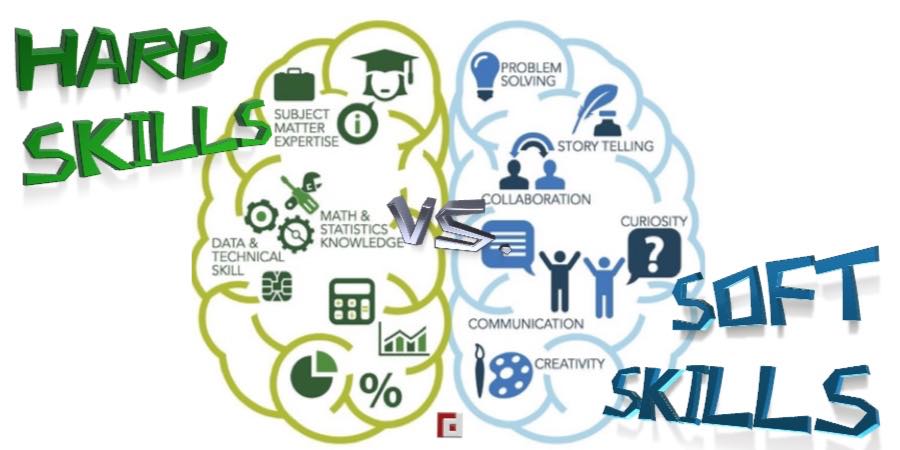from one of the top Recruitment Agency & Outsourcing Company in Thailand & Indonesia
Hard skills vs. Soft skills

During the job application and interview process, employers look for applicants with two skill sets: hard skills and soft skills. Successful candidates will make sure to put both sets of skills on display. In order to do so, it helps to understand the difference between these two types of skills. Get definitions and examples of hard and soft skills, along with tips for how to showcase them in this video.
What are the Key Soft Skills?
This section is an extensive, but not exhaustive, a guide to what should be considered as some of the key soft skills.
Communication
As a soft skill, communication is not about multiple syllables or rousing speeches. Able communicators can adjust their tone and style according to their audience, comprehend and act efficiently on instructions, and explain complex issues to colleagues and clients alike. Communication is also an important aspect of leadership since leaders must be able to delegate clearly and comprehensibly.
Self-Motivation
Having the positive attitude and the initiative to work well without round-the-clock supervision is a vital soft skill for any employee. Not only does it demonstrate reliability and commitment, but it shows that you can fit efficiently into an organisational structure without the need for constant oversight.
Leadership
Leadership is a soft skill you can show even if you’re not directly managing others. Leadership can be thought of as a collection of various other soft skills, such as a general positive attitude and outlook, the ability to communicate effectively, and an aptitude for both self-motivating and motivating others.
Responsibility
Self-awareness is a seldom talked about but highly valued soft skill; knowing when to accept responsibility for any mistakes you have made demonstrates a healthy level of humility, and a willingness to learn and progress.
Teamwork
Like leadership, good teamwork involves a combination of other soft skills. Working in a team towards a common goal requires the intuition and interpersonal acumen to know when to be a leader, and when to be a listener. Good team players are perceptive, as well as receptive to the needs and responsibilities of others.
Problem Solving
Problem solving does not just require analytical, creative and critical skills, but a particular mindset: those who can approach a problem with a cool and level head will often reach a solution more efficiently than those who cannot. This is a soft skill which can often rely on strong teamwork too. Problems need not always be solved alone. The ability to know who can help you reach a solution, and how they can do it, can be a great advantage.
Decisiveness
Knowing the distinction between decisiveness and recklessness implies a soft skill in itself. Decisiveness combines a number of different abilities: the ability to put things into perspective, to weigh up the options, to assess all relevant information and, crucially, to anticipate the consequences, good and bad.
Ability to Work Under Pressure and Time Management
Many jobs come with demanding deadlines and occasionally high stakes. Recruiters prize candidates who show a decisive attitude, an unfaltering ability to think clearly, and a capacity to compartmentalize and set stress aside. Time management is closely related to the ability to work under pressure, as well as within tight deadlines. Employees who manage their time well are able to efficiently prioritize tasks and organize their diaries while adopting an attitude which allows them to take on new tasks and deadlines.
Flexibility
Naturally, people can be wary of leaving the comfort zone formed by their repertoire of hard skills. Flexibility is an important soft skill, inasmuch as it demonstrates an ability and willingness to acquire new hard skills, and an open-mindedness to new tasks and new challenges. Employers often seek candidates who can show a willing and upbeat attitude, since many jobs come with the possibility of secondments.
Negotiation and Conflict Resolution
This is another of those soft skills which employers look for in potential leaders. To be an adept negotiator is to know how to be persuasive and exert influence, while sensitively seeking a solution which will benefit all parties. Similarly, conflict resolution depends on strong interpersonal skills and the ability to establish a rapport with colleagues and clients alike.
Read more about soft skills in wiki job.
OTHER ARTICLES THAT MIGHT INTEREST YOU
